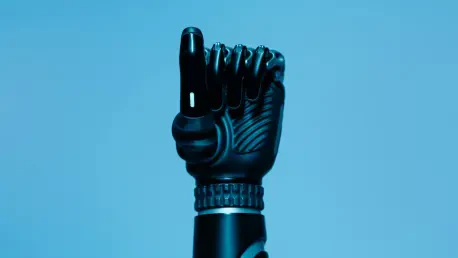Navigating the complex landscape of healthcare technology requires a profound understanding of both the industry and technological advancement. James Maitland, a prominent figure in the field of robotics and IoT applications in medicine, brings unparalleled insights into how these innovations are revolutionizing healthcare solutions. In this interview, we explore the intersection of healthcare and technology, uncover the transformative potential of these innovations, and discuss Maitland’s unique perspective on the future of medical technology.
What initially sparked your interest in robotics and IoT applications within the medical field?
The journey began during my early career when I witnessed the profound impact that technology could have on patient outcomes. The ability to integrate robotics and IoT into medical procedures promised not only increased precision and safety but also the potential to dramatically improve recovery times and patient comfort. This intersection where technology meets human care is both exciting and deeply rewarding.
How do you see robotics changing the landscape of healthcare today and in the future?
Robotics is reshaping healthcare by increasing the accuracy of surgical procedures, minimizing invasiveness, and accelerating recovery times. As we advance, I believe we will see robotics becoming integral in procedures across various specialties, providing patients with more personalized and less invasive options. The future holds incredible promise with fully automated systems playing a central role in routine surgeries and medical maintenance.
What role does IoT play in healthcare, and how can it transform patient management?
IoT plays a critical role by enabling continuous monitoring of patients, ensuring data is seamlessly collected and analyzed. This leads to predictive insights that can prevent complications before they arise. Real-time data allows healthcare providers to make informed decisions faster, leading to more effective and personalized treatments. In the long run, IoT can help create a more proactive healthcare system focused on prevention rather than cure.
Could you share some examples where robotics and IoT have already made significant impacts in medical practices?
Absolutely. In surgery, robotic assistance has drastically improved the outcomes for procedures that require high precision, such as in neurosurgery and orthopedics. Meanwhile, IoT devices such as wearable monitors have allowed for real-time health tracking, giving both patients and doctors actionable insights into chronic conditions like diabetes and heart disease. These examples are just the tip of the iceberg in terms of what we’re capable of achieving.
What challenges do you foresee in integrating these technologies into mainstream healthcare?
One major challenge is ensuring the interoperability of new technologies with existing systems. Healthcare data is incredibly sensitive, so maintaining security and privacy is paramount. Additionally, the costs of implementing these cutting-edge technologies can be prohibitive, which may limit access or delay widespread adoption. However, as technology advances and becomes more affordable, I believe these barriers will gradually diminish.
How has the healthcare industry responded to the increasing presence of technology in medical procedures?
While there is sometimes apprehension around new technologies, the healthcare industry has largely embraced innovations that can demonstrably improve patient outcomes. Training and upskilling healthcare professionals to work alongside these technologies are vital, and we’ve seen encouraging efforts to incorporate that into medical education and ongoing professional development.
Looking forward, what is your forecast for the role of technology in healthcare?
I believe that technology will continue to transform healthcare at an unprecedented pace. In the next decade, we will likely see more autonomous systems in routine medical practices and personalized medicine becoming the norm. The combination of robotics, IoT, and artificial intelligence will create a more anticipatory healthcare model, capable of understanding and responding to patient needs before they even manifest, ultimately leading to healthier populations and more efficient healthcare systems.









